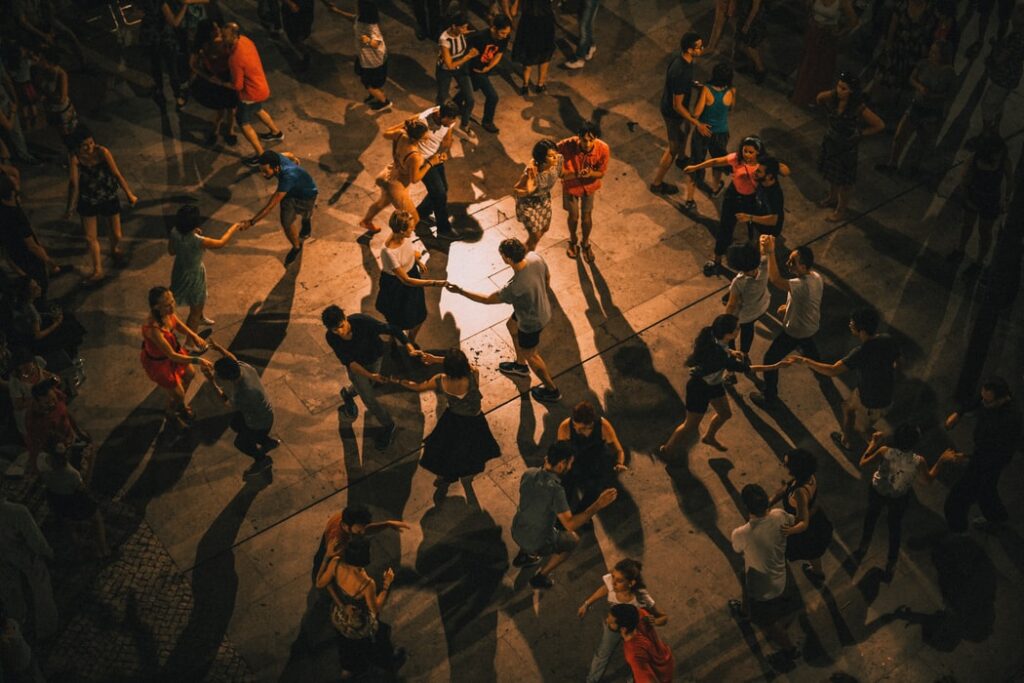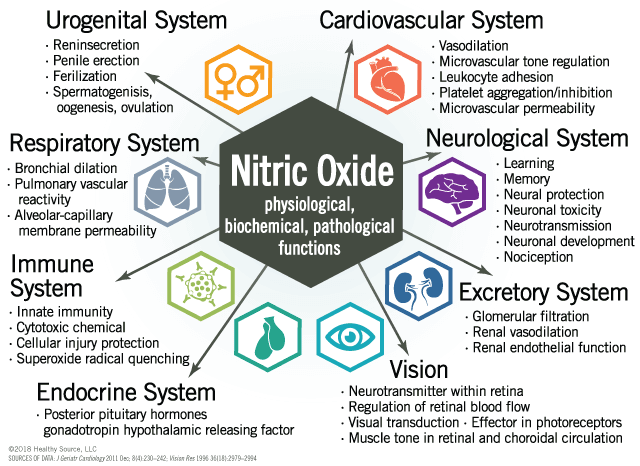Music is among the few universal aspects of the human experience. It is so deeply embedded in our lives that we almost take it for granted. We have been singing and dancing for millennia. And these activities have played a big role in our cultural and biological evolution.
Not just at the collective level, but music also commands influence at the individual level. It has the power to alter our psychology and physiology in significant ways. And we should be leveraging this power to bring positive changes in our lives.
The Influence of Music
Music is one of the most primal forms of communication known to us. It transcends boundaries. We were singing and dancing much before we started talking. In fact, some research suggests that music provided the precursor for the evolution of language.
In every culture we know of, for almost all of human history, music has been a constant presence. Why? Singing and dancing create this combination of social synchronicity and light levels of stresses on the muscle system, which is very good at triggering the release of endorphins. These endorphins put you in a relaxed and happy state, creating a pharmacological basis for friendship. This capacity of singing and dancing to bond a group of strangers played a pivotal role in our evolutionary success. Music provided the social glue necessary for the emergence of large communities, which are more secure against predators and increase the scale of cooperation.
And it continues to play that role even today. Think of anything that brings people together — sports, festivals, art, religious rituals, celebrations — you’ll see that music (in the form of singing, chanting, instruments, or dancing) is all-pervasive. It changes the way we interact with one another and creates a sense of belonging. Music is also a powerful medium for encoding messages, making it central to traditions.

Now, music is able to derive all this power because our brains and bodies are wired to sing and dance.
Innate Sense of Rhythm
You’ll see babies responding to music just by being exposed to it; you don’t have to “teach” music to them. And at a very young age, kids can sense when a note is out of tune. Even without any musical training, most of us are pretty good at “keeping the beat”. We can easily anticipate what’s going to come next and tap along.
The calculations involved in tracking the rhythm and moving along in response are quite complex. If we were to do them consciously, there’s no way we’d be quick enough to respond in real-time. It’s an unconscious process. This suggests there is dedicated circuitry in our brain for processing music. And this circuitry is also very good at taking information from one sensory channel and translating it into a motor output. It’s pretty interesting how an arrangement of sounds over time causes us to move our bodies in space.
But what’s even more interesting is the influence of music on our mood and emotions.
Elevating our Mood
We share a very intimate relationship with music. It holds the power to completely shift our emotional states. You know this from experience. Slow music can put you in a relaxed state. High-tempo songs can get your blood pumping and also motivate you. Some songs can evoke powerful emotions and even give you chills. And we get all that just from passive listening.
But music’s true powers are unlocked when we engage with it physically. The act of singing and dancing set off a host of positive changes in our minds and bodies.
As mentioned earlier, when you sing and dance, you trigger the release of endorphins in your body. These endogenous opiates are not only really good at making you feel really good but are also very effective at killing off any pain or stress. As one would expect, singing and dancing have also shown to reduce the levels of the stress hormone cortisol, and alleviate anxiety in the process.
In a post about how cannabis works, I talked about how we have an endocannabinoid system that facilitates the mind-altering effects of cannabis and also modulates the stress response. Research shows that this endocannabinoid system can also be activated through singing and dancing. You can basically get high on your own supply anytime you want.
Again, you probably know all this from experience. I’m sure you’ve experienced that sense of euphoria from dancing and singing at some point in your life.
Singing and Dancing for a better life
It’s obvious that dancing is a great whole-body workout. Like most forms of exercise, it improves heart and lung function, strength, and muscular endurance. Dancing is also known to increase bone strength, agility, coordination, and balance. And of course, it burns a lot of calories. The best part — it’s not a drag.
As for singing, of course, it is not really an aerobic activity. But the simple act of singing makes us take deeper breaths and maintain long exhalations. Which then activates the parasympathetic nervous system enabling a bunch of positive changes — lower blood pressure, calmer mind, increased willpower.
Relevant Plug: The Physiology of Willpower
Even something simple like humming increases the production of nasal Nitric Oxide, a molecule central to so many of our biological processes. (I guess that’s why some of the ancient yogic techniques like the “Om” meditation or the Bee Breath technique involve humming)

Then there are all kinds of cognitive benefits you can derive from singing and dancing. Singing has shown to improve mental alertness, concentration, and memory. Dancing gets your blood pumping and increases the flow of oxygenated blood throughout the body, including to the brain — killing off mental fatigue and enhancing your cognition. In general, any kind of exercise that gets your heart rate up delivers a bunch of neurobiological benefits, making you happier, smarter, driven, and focused.
Relevant Plug: The Cognitive Benefits of Exercise
Of course, we should not ignore the social aspects — the ability to express ourselves through movement, meeting new people, deepening our bonds, etc. Music can make our lives so much richer.
Okay, so here we have something that’s not only enjoyable but also significantly improves our sense of well-being and quality of life. Should it not then be an integral part of our day-to-day lives? Why save singing and dancing for some special occasions? It makes no sense to not be singing and dancing daily.
Internal Resistance
For some people, the act of singing or dancing brings up a lot of internal resistance. I used to be one of them. The resistance originates from a place of insecurity and the need to control our perceived image, but let’s not go there.
You don’t have to sing or dance for someone else. Do it for yourself. You won’t care about what you sound like or look like if you’re on your own. It does not have to be “good” or technically correct or anything. You are wired to sing and dance. Just get out of the way and vibe. Let the music do its thing to you.
One other reason for internal resistance could be that that singing and dancing randomly does not feel normal (which is a shame). We don’t usually do those things without external triggers. Well, it’s your game. Change the rules. It might feel weird or awkward a couple of times. After that, you won’t care. It will feel like the most natural thing in life. Because it is.
Singing and Dancing because it is fun.
Forget all the benefits. We don’t need a reason to sing and dance. It’s free. It’s fun. It is a big part of what makes us human.
The modern lifestyle has us disconnected from our bodies. We spend most of our waking life sitting on our ass. Singing and dancing provide a great little escape from the monotony of life. Dancing, especially, is the perfect way to get out of your head and into your body. And we all could use some time outside our overthinking heads.
[When Vonnegut tells his wife he’s going out to buy an envelope] Oh, she says, well, you’re not a poor man. You know, why don’t you go online and buy a hundred envelopes and put them in the closet?
And so I pretend not to hear her. And go out to get an envelope because I’m going to have a hell of a good time in the process of buying one envelope. I meet a lot of people. And, see some great-looking babes. And a fire engine goes by. And I give them the thumbs up. And, and ask a woman what kind of dog that is. And, and I don’t know. The moral of the story is, is we’re here on Earth to fart around. And, of course, the computers will do us out of that. And, what the computer people don’t realize, or they don’t care, is we’re dancing animals. You know, we love to move around. And, we’re not supposed to dance at all anymore.
Music has a way of making us feel alive like nothing else. It is able to capture things that go beyond our rational, logical minds. Engage with it freely. Don’t wait for a cue. Or let this be your cue. Hit it.
P.S. Here’s a brilliant little documentary on Music by Vox — Explained | Music (20 mins)
Thank you for reading. Most of the content on this website has emerged from conversations with readers like you. Every Sunday, I send out an email dissecting some aspect of the human mind.
If you can take out a few minutes every week, I’ll help you develop a strong understanding of how your mind works. So that you can shape your life exactly as you want.
You can sign-up below. Or you can sign-up after reading my story and the core idea behind this website: We Should Be Getting More Out of Our Lives (would recommend)
Feedback and comments are very much appreciated.